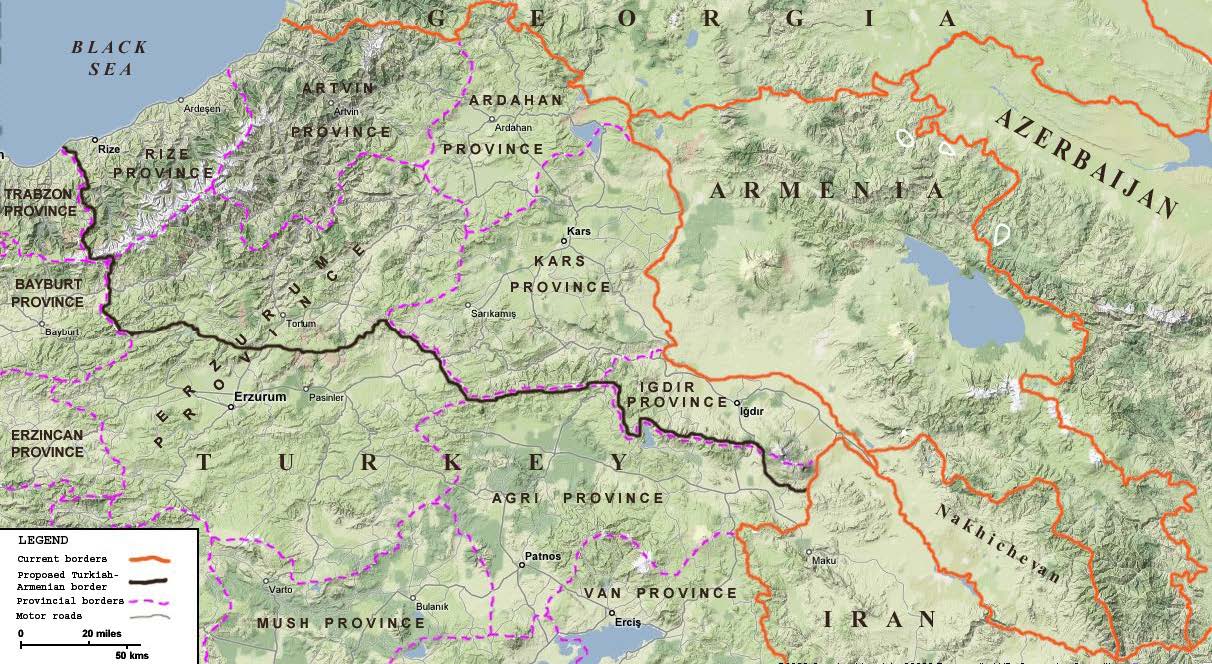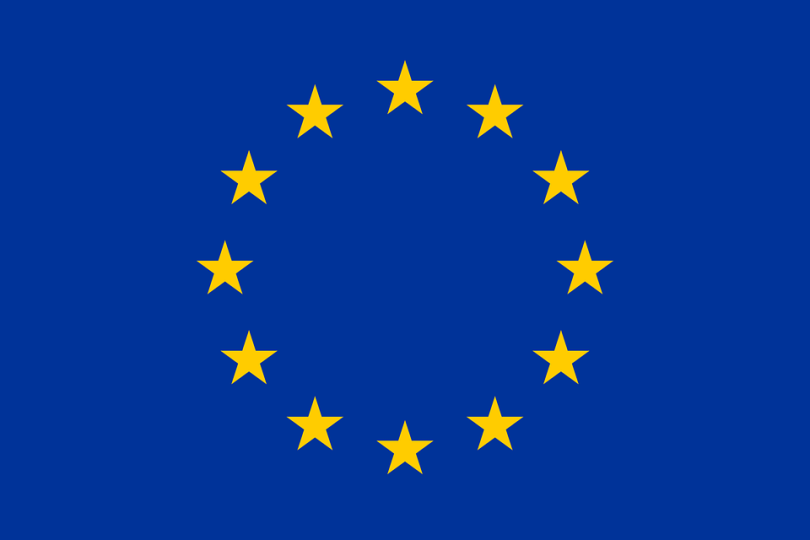David Davidian*, Yerevan, Armenia January 2019
Abstract: In 1987, the European Parliament, sharing legislative functions of the EU, officially recognized the historical reality of the Turkish genocide of the Armenians, calling on both sides to “create a basis for reconciliation.” Further, constituent members of the EU, including Austria, Belgium, Bulgaria, Cyprus, Czech Republic, France, Germany, Italy, Lithuania, Luxembourg, Netherlands, Poland, Slovakia, Sweden, have individually announced their recognition. Germany took the additional step sighting its involvement in this genocide.
Land reparations, as seen on the accompanying map, associated with the full recognition of the Armenian genocide will provide a new trading route for littoral states in the European Black Sea region south through Armenia into Iran, Iraqi Kurdistan, northeast Syria, Iraq to the Persian Gulf, crossing proposed southern Chinese Silk Road routes. This new trading route will alter regional and great power influence in the region.
The ability for Armenia to strengthen its self-sufficiency and sovereignty over its policies with this reparated land mass to the Black Sea greatly enhances its direct association with, if not outright membership in, the EU, a follow-on to the 2017 Comprehensive and Enhanced Partnership agreement between the EU and Armenia.
Background and Current EU policy: There is no unified EU position ratified by all EU member states, even though half of current EU member states have recognized the Armenian genocide. The remaining states have weighed the benefits and disadvantages of this recognition, generally predicated on economic interests with Turkey, and have not stated a position. The 1987 European Parliament statement of recognition heavily implied that Turkish recognition is a prerequisite for EU membership.
Non-EU European states that have recognized this genocide include Switzerland and the Vatican.
The Turkish Republic, in every case of Armenian genocide recognition, protested vehemently and in many instances called back their ambassador in disapproval.
However: The Council of the European Union together with the European Parliament, constituting the main decision-making body of the EU, should consider full recognition of the Armenian genocide including land reparations in support of the sovereign expansion of Armenia to the Black Sea or formulate policies in anticipation of a Turkish catalytic recognition where,
- Armenia creates a new north-south trading route from the Black Sea south through Armenia, offering previously unavailable direct access across the Black Sea for European states and entities to the south of This route is also significant given China’s Silk Road initiatives.
- This reparated land provides an alternative hydrocarbon transport route north, diversifying EU’s energy sources by bringing Mesopotamian and post-sanctions Iranian reserves to the European shores of the Black Sea.
- With enhanced sovereignty and self-sufficiency, an expanded Armenia can contribute to the prosperity and opportunities for European businesses, citizens, and improve the quality of people’s lives in the EU, and fostering reciprocal stability in these new southern markets.
- Europe becomes politically strengthened by the inevitable economic ties formed with Armenia and states to its south.
- A self-sufficient Armenia can maintain the necessary characteristics that will counter the expansionist nature and land-acquisition characteristics of neighboring states.
In summary: The EU should weigh the benefits of full recognition of the Armenian genocide including land reparations as regional conditions dictate including a catalytic genocide recognition by Turkey. A stronger Armenia provides a new north-south route from Europe’s Black Sea states to Armenia, Georgia, Azerbaijan, Iran, Iraqi Kurdistan, northwest Syria, and Iraq to the Persian Gulf.
* David Davidian is a US-born citizen residing in Armenia. He is an Adjunct Lecturer at the American University of Armenia.


